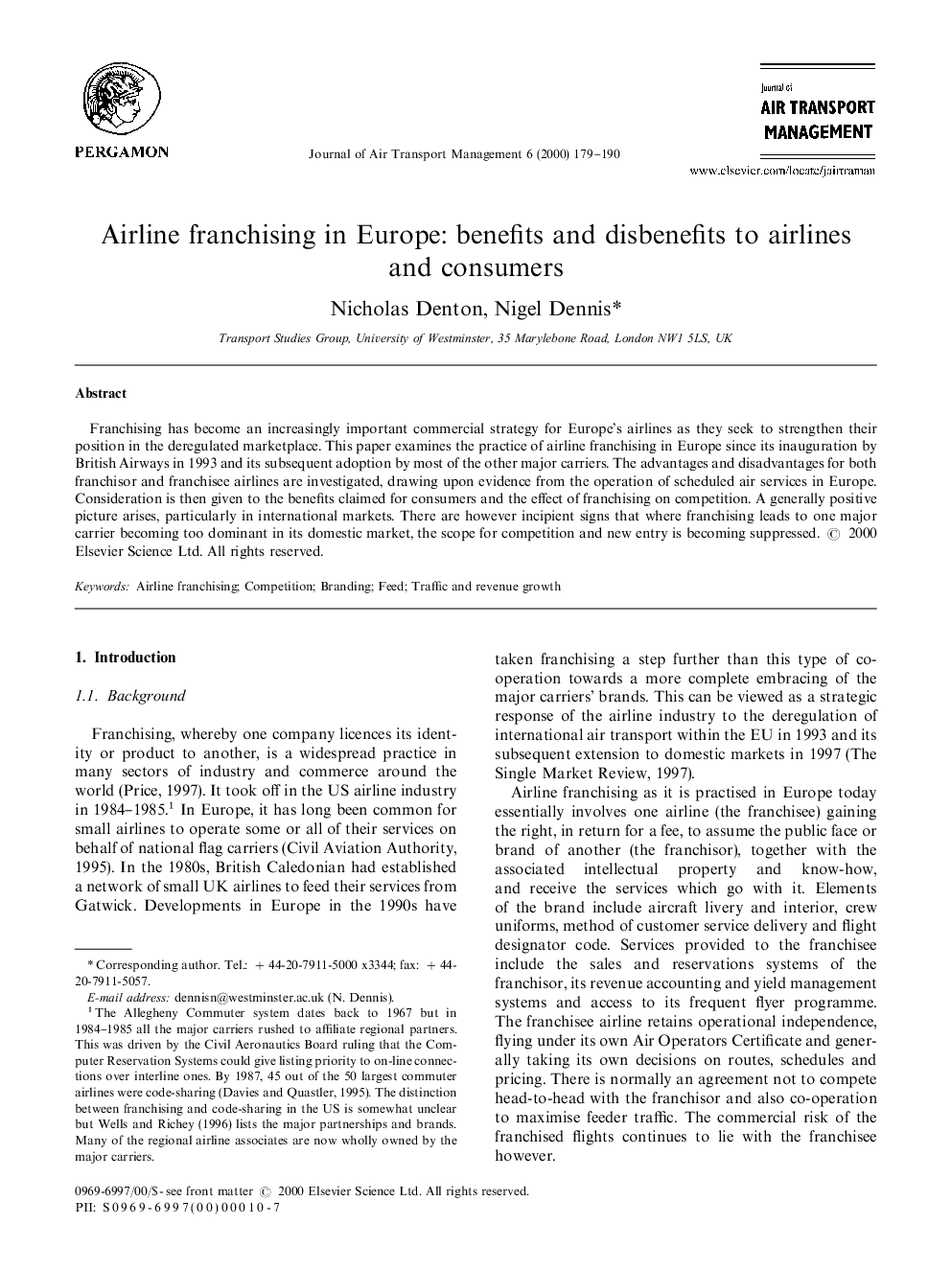| Article ID | Journal | Published Year | Pages | File Type |
|---|---|---|---|---|
| 12133972 | Journal of Air Transport Management | 2000 | 12 Pages |
Abstract
Franchising has become an increasingly important commercial strategy for Europe's airlines as they seek to strengthen their position in the deregulated marketplace. This paper examines the practice of airline franchising in Europe since its inauguration by British Airways in 1993 and its subsequent adoption by most of the other major carriers. The advantages and disadvantages for both franchisor and franchisee airlines are investigated, drawing upon evidence from the operation of scheduled air services in Europe. Consideration is then given to the benefits claimed for consumers and the effect of franchising on competition. A generally positive picture arises, particularly in international markets. There are however incipient signs that where franchising leads to one major carrier becoming too dominant in its domestic market, the scope for competition and new entry is becoming suppressed.
Keywords
Related Topics
Social Sciences and Humanities
Business, Management and Accounting
Strategy and Management
Authors
Nicholas Denton, Nigel Dennis,
